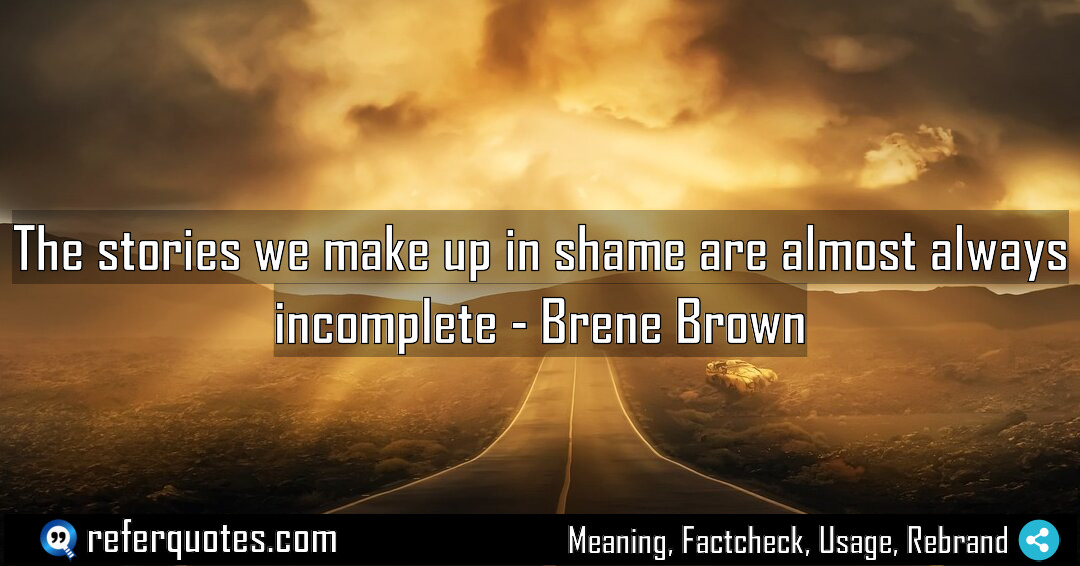You know, when Brene Brown says “The stories we make up in shame are almost always incomplete,” she’s hitting on a universal human truth. We all do this—our minds race to fill the gaps with worst-case scenarios when shame strikes, but those narratives are rarely the whole picture. It’s a powerful reminder to challenge the stories we tell ourselves in those vulnerable moments.
Share Image Quote:Table of Contents
Meaning
At its core, this quote means that the narratives we construct when we’re feeling ashamed are fundamentally flawed because they’re based on fear and self-judgment, not objective reality. They’re missing crucial pieces of the story.
Explanation
Let me break this down for you. When shame hits, it’s like our brain goes into overdrive trying to make sense of the pain. But it does a terrible job. It grabs onto the most negative, self-critical interpretations possible and presents them as fact. The story might be “I’m a failure” or “Everyone must think I’m an idiot.” But here’s the thing—that story is a rough draft written by your inner critic. It conveniently leaves out any context, any mitigating circumstances, any evidence to the contrary, any compassion. It’s a story built on a foundation of “not enough.” And because it’s incomplete, it’s also inaccurate. It can’t possibly hold the whole, messy, complicated truth of who you are.
Quote Summary
| Context | Attributes |
|---|---|
| Original Language | English (3668) |
| Category | Education (260) |
| Topics | narrative (2) |
| Literary Style | plain (102) |
| Emotion / Mood | clarifying (20), lively (108) |
| Overall Quote Score | 66 (27) |
Origin & Factcheck
This insight comes directly from Brené Brown’s 2004 book, “Women & Shame: Reaching Out, Speaking Truths,” which was published in the United States. It’s a cornerstone of her early research on shame and vulnerability, long before “Daring Greatly” made her a household name. You won’t find this specific, powerful phrasing mistakenly attributed to other authors; it’s pure, foundational Brené.
Attribution Summary
| Context | Attributes |
|---|---|
| Author | Brene Brown (257) |
| Source Type | Book (4032) |
| Source/Book Name | Women & Shame: Reaching Out, Speaking Truths (39) |
| Origin Timeperiod | 21st Century (1892) |
| Original Language | English (3668) |
| Authenticity | Verified (4032) |
Author Bio
Dr Brene Brown is the author of books such as Daring Greatly and The Power of Vulnerability. The TED talk and Netflix production based on her research reached out to millions of audience. She researches effects of courage and vulnerability in shaping people's work and relationships. She leads the Brené Brown Education and Research Group and provides evidence-based insights into practical tools to help people train themselves
Official Website |Facebook | X | Instagram | YouTube |
Where is this quotation located?
| Quotation | The stories we make up in shame are almost always incomplete |
| Book Details | Publication Year: 2004; (other edition details unknown) |
| Where is it? | Approximate page from 2004 Hazelden edition, Section: Story and Rumination |
